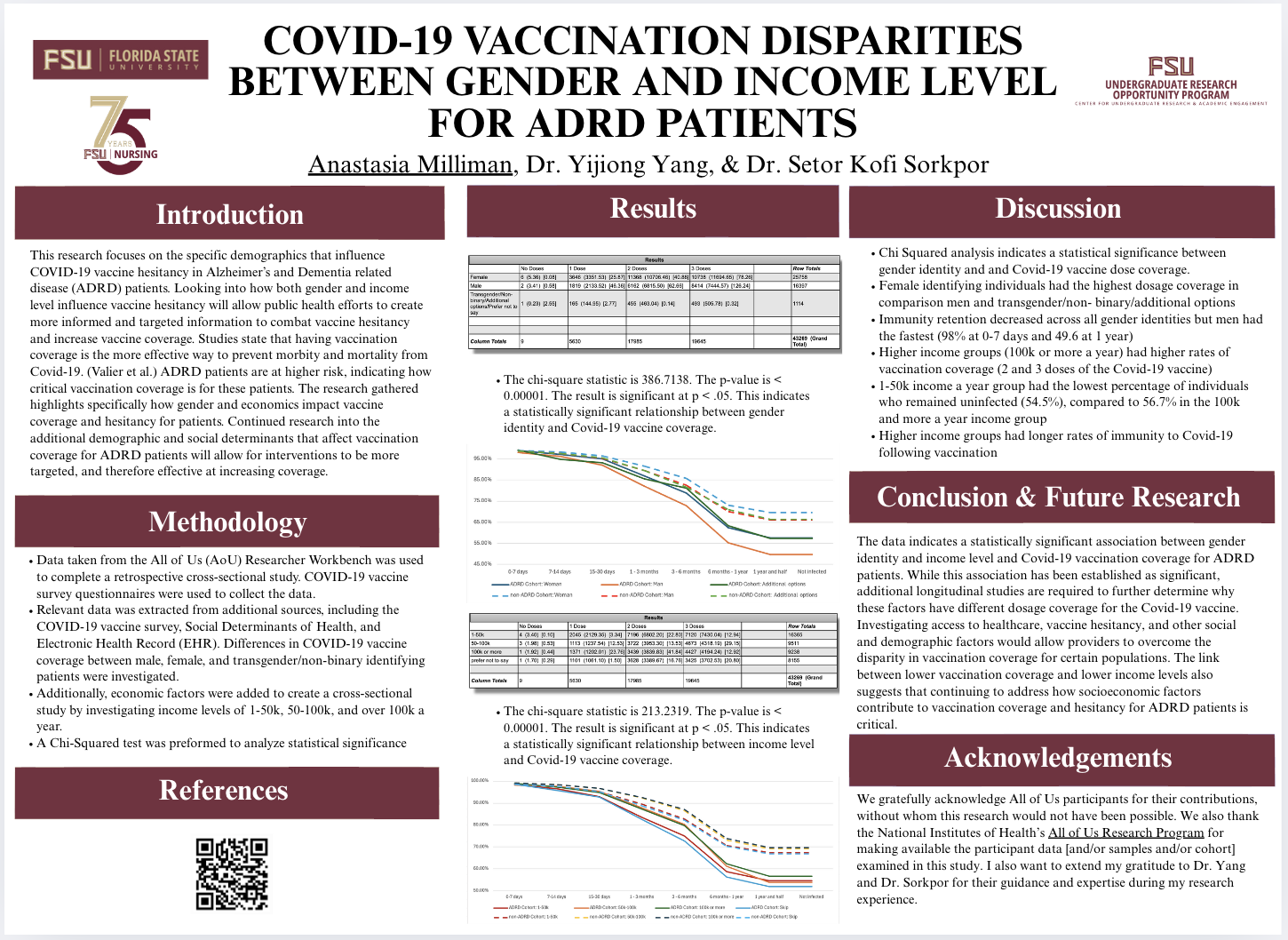Research Symposium
25th annual Undergraduate Research Symposium, April 1, 2025
Anastasia Milliman Poster Session 3: 1:45 pm - 2:45 pm/ Poster #19

BIO
My name is Anastasia Milliman, and I am a first year IMS: Clinical Professions major on a pre-med track. At home I am a volunteer EMT and work as a Transportation Aid at my local hospital. I also earned my Girl Scout Gold Award last year which focused on community education for women's cardiovascular health. In the future I aspire to go to medical school and become a physician with a focus in Obstetrics and Gynecology. While I have a passion for women's healthcare, part of my inspiration for medicine stems from wanting to advocate for equality in healthcare. My work on this project and the advocacy for Alzheimer's and Dementia patients has furthered my passion for wanting to serve my community through medicine. I look forward to continuing to develop my skills in research through future projects and to make a meaningful impact.
Covid-19 Vaccination Disparities Between Gender and Income Level for ADRD Patients
Authors: Anastasia Milliman, Dr. Yijiong YangStudent Major: IMS: Clinical Professions
Mentor: Dr. Yijiong Yang
Mentor's Department: Nursing Department Mentor's College: FSU College of Nursing Co-Presenters: n/a
Abstract
Alzheimer’s and Dementia-Related Disease (ADRD) patients are at increased risk for Covid-19 complications, making vaccination coverage critical. This study investigates how gender identity and income level influence COVID-19 vaccine hesitancy and coverage among ADRD patients. Using data from the All of Us (AoU) Researcher Workbench, a retrospective cross-sectional analysis was conducted incorporating COVID-19 vaccine survey responses, social determinants of health, and electronic health records. A Chi-Square analysis revealed statistically significant data in vaccination coverage based on gender identity, with female-identifying individuals showing the highest coverage rates. Additionally, higher-income individuals (>$100K annually) demonstrated greater vaccine uptake and longer immunity rates in comparison to lower-income groups ($1-50K annually). These findings emphasize the need for targeted public health strategies to address vaccination hesitancy and improve accessibility for underrepresented populations.
Keywords: ADRD, Covid-19, Vaccination, Income, Gender

